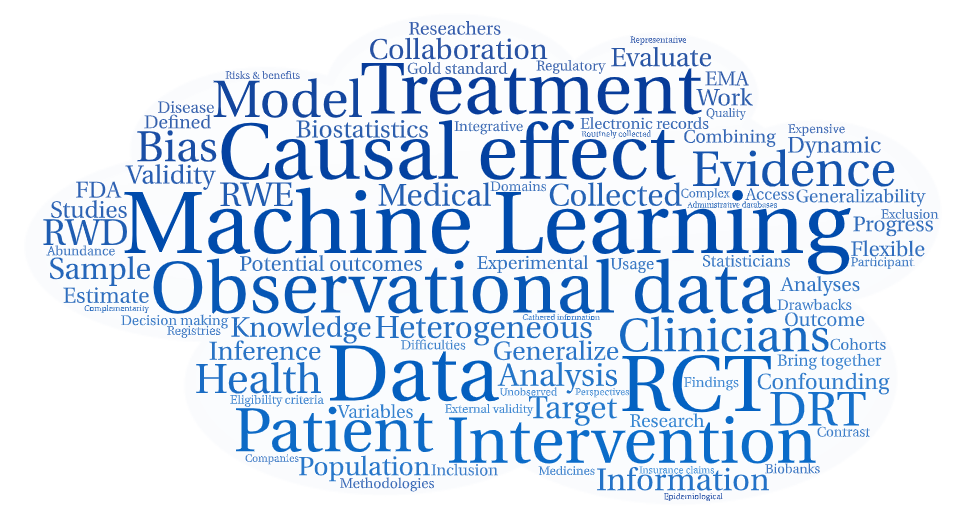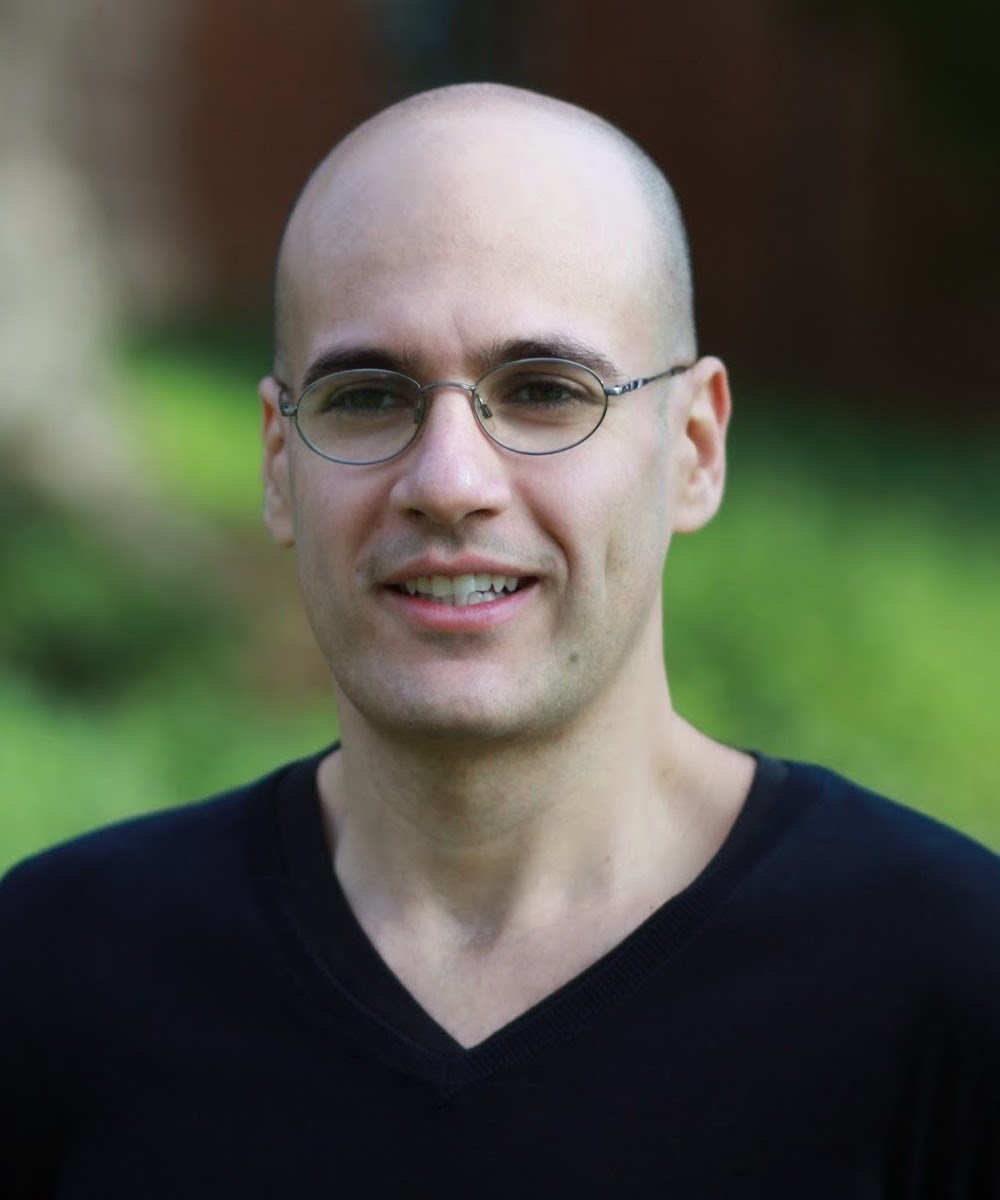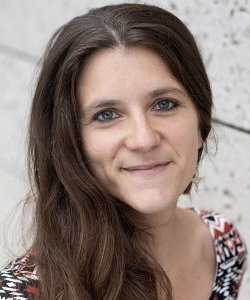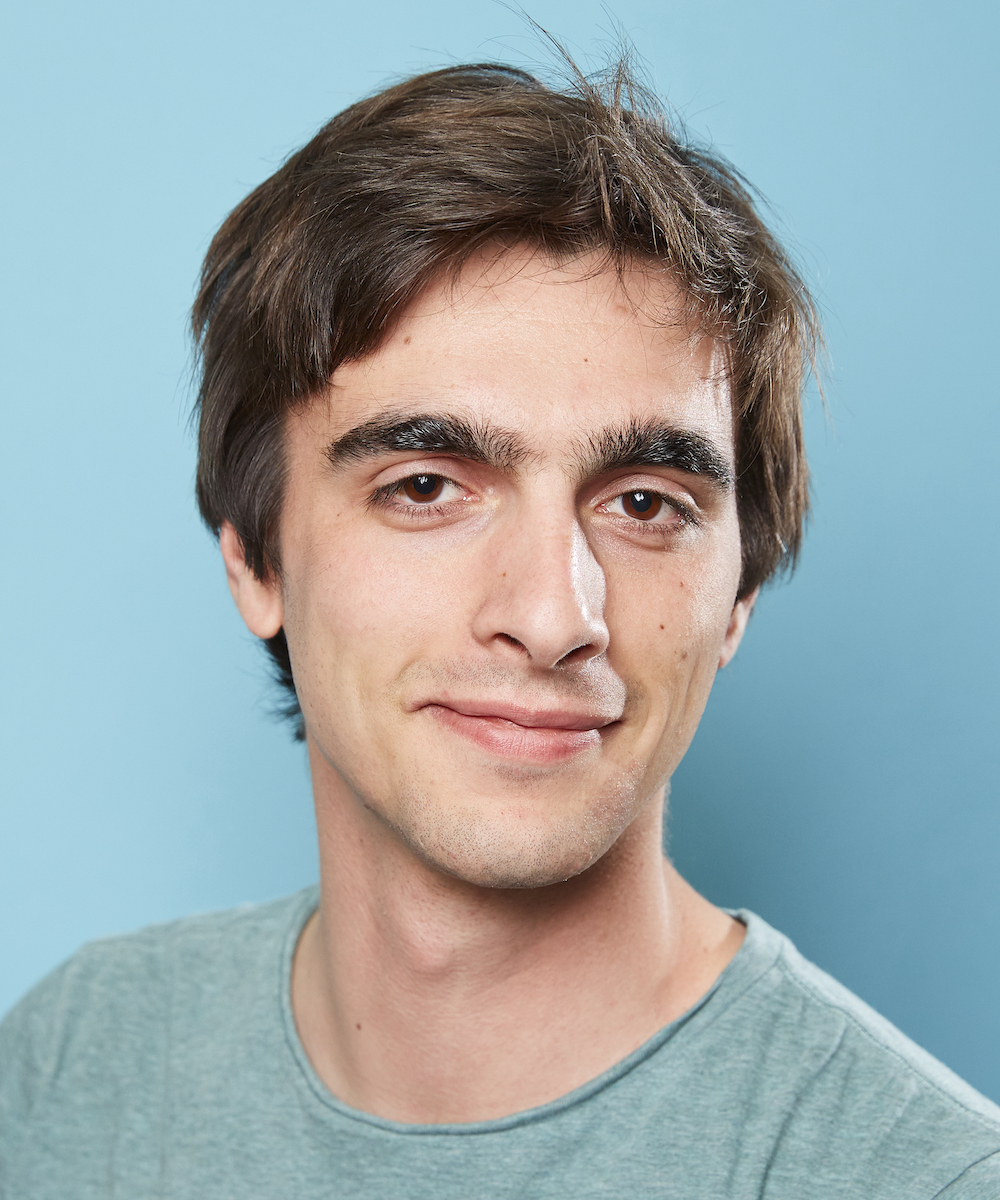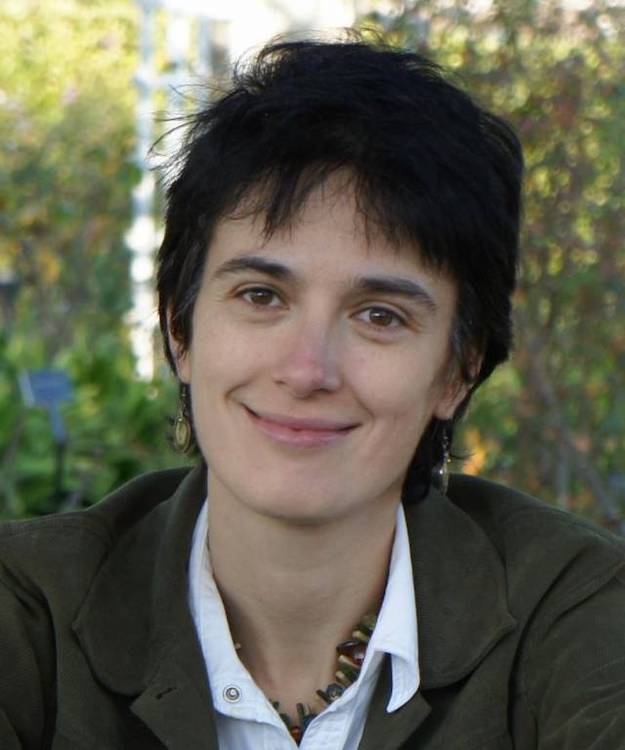| 14:00-14:15 |
Opening by the workshop organizers |
|
|
| 14:15-15:05 |
Mihaela van der SchaarMihaela van der Schaar is the John Humphrey Plummer Professor of Machine Learning, Artificial Intelligence and Medicine at the University of Cambridge. In addition to leading the van der Schaar Lab, Mihaela is founder and director of the Cambridge Centre for AI in Medicine (CCAIM). Her ground-breaking work on machine learning for healthcare includes the development of improved methods for forecasting individual risks and for identifying covariates that are most important for forecasting risk. Her work has identified better treatment options for patients with heart failure, cystic fibrosis, breast cancer, and Alzheimer’s disease.
Chair: Julie Josse (Inria, IDESP) |
14:00-14:50 |
Els GoetghebeurEls Goetghebeur is Full Professor in the Department of Applied Mathematics, Computer Science and Statistics. She chairs the UGent expert Center for Statistics. She is chief-editor of ‘Statistics in Medicine’ and chair of the causal inference group of STRATOS ‘Strengthening Analytical Thinking for Observational Studies’. Her research is devoted to the development and application of data analytic methods for primarily biomedical applications generally and with a focus on causal inference, survival analysis and quality of care.
Chair: Raphaël Porcher (Université de Paris) |
| 15:05-15:25 |
Clémence LeyratAfter her studies of cognitive sciences and biostatistics at the University of Bordeaux, Clémence did her PhD in Paris on the use of propensity score methods for the analysis of cluster randomised trials. Since 2015, she has worked at the department of Medical Statistics at the LSHTM. She does methodological research on missing data methods in propensity score analysis. And she is also interested in the analysis of observational data, in collaboration with researchers from the Electronic Health Records group at LSHTM. Since 2018, she is also part of the Inequalities in Cancer Outcomes Network and interested in the application of causal inference methods, including emulated trials, to understand cancer inequalities in the UK. Using large observational data to emulate target trials: What can be done to address immortal-time bias?Abstract: Real world evidence from observational studies is becoming increasingly important to influence health care policies. However, unlike randomised trials, observational studies are prone to bias, such as confounding or immortal-time bias. A general framework to emulate randomised trials from observational data has been proposed to estimate causal effects while addressing these two issues. Briefly, the approach involves cloning, censoring and then re-weighting observations. In this talk, I will present the methodology and its underlying assumptions, and discuss the benefits of this procedure over more standard modelling approaches as well as the role double robust methods and machine learning could play in this context. This will be illustrated with an application to the estimation of the causal effect of early surgery on 1-year survival among older lung cancer patients using data from the England Cancer Registry.
|
14:50-15:40 |
Rui SongRui Song is Professor of Statistics at North Carolina State University. Her current research interests include Machine Learning, Causal Inference, Precision Health, Financial Econometrics. More specifically, she works on high dimensional statistical learning, reinforcement learning, semiparametric inference and dynamic treatment regimes. She is currently a fellow of American Statistical Association (ASA) and Institute of Mathematical Statistics (IMS).
Chair: Julie Josse (Inria, IDESP) |
| 15:25-15:45 |
Nicolas Loiseau
Inferring treatment effect with external control arms
Chair: Michael Blum (Owkin) |
|
|
| 15:45-16:00 |
Coffee break |
15:40-16:00 |
Coffee break |
| 16:00-16:20 |
Yohann FoucherYohann Foucher is Professor in Nantes’s University in France. In his research he focuses on longitudinal data analysis with censoring, precision and stratified medicine, and propensity weighting score methods. Simulation-based studies related to the G-computation for causal inference: an overview of recent resultsAbstract: Different methods are available to estimate a marginal effect in presence of confounders. In the literature, the G-computation (GC) is a less applied method than those based on the propensity score. We conduct several simulation-based studies to explore its performances in distinct circumstances. We focus on a binary treatment, a binary outcome and baseline confounders.Firstly, we investigate the impact on the performances of covariates' selection. We use different sets of covariates in the GC as well as in three other methods: inverse probability of treatment weighting (IPW), full matching and targeted maximum likelihood estimator (TMLE). The results suggest that considering all the covariates causing the outcome leads to the lowest variance without increasing the bias, particularly for the GC. (Chatton et al., Sci Rep 2020) Secondly, we combine machine learning and G-computation. We evaluate the performances of several methods, including penalized logistic regressions, neural network, support vector machine, boosted classification and regression trees, and super learner. We report that the super learner leads to a bias close to zero without variance or convergence issue, even in small sample sizes. The support vector machine also performs well, but the mean bias is slightly higher than the super learner one. (Le Borgne et al., Sci Rep 2021) Thirdly, we study the robustness of GC to a near-violation of the positivity assumption associated with different level of extrapolation issue. We compare the performances between GC, IPW, truncated-IPW, TMLE, and truncated-TMLE. The GC seems less prone to bias than IPW and truncated-IPW, except in the presence of an improbably high extrapolation issue. The TMLE have similar properties but at the cost of a severe under-coverage in all studied scenarios. (Léger et al., In revision) Lastly, we define the theoretical background of the GC implementation for time-to-event analyses, and we compare the performances of GC and IPW in such a context. We report higher efficiency for GC when the causes of the outcomes are considered, even in the presence of a high censoring rate. (Chatton et al, In revision) In light of these results, we propose novel functions in the R package “RISCA” to encourage the use of the GC. We are working to further propose a super learner for causal inference in the context of time-to-event outcomes.
|
16:00-16:20 |
Devin Incerti
A meta-analytic framework for decision making and error control in clinical trials with external control arms
Chair: Michael Blum (Owkin) |
| 16:20-17:10 |
Bill CrownBill Crown is a Distinguished Research Scientist in the Heller School. He is an expert in real world data analysis, focusing upon research designs and statistical methods for drawing causal inferences from transactional health care datasets such as medical claims and electronic health records. He then became lead health economics consultancies at Truven and Optum. And until recently, he was Chief Scientific Officer at OptumLabs. He currently co-chairs the ISPOR Task Force on Machine Learning and is particularly interested in the intersection of machine learning and causal inference methods, as well as transparency in the conduct and reporting of empirical health care research.
Chair: Michael Blum (Owkin) |
16:20-17:10 |
Elizabeth A. StuartElizabeth A. Stuart is Vice Dean for Education and Bloomberg Professor of American Health in the Departments of Mental Health Biostatistics, and Health Policy and Management of the Johns Hopkins Bloomberg School of Public Health. She received her Ph.D. in Statistics in 2004, from Harvard University. She is particularly interested in the trade-offs in different designs for estimating causal effects, especially in terms of improving internal validity of non-experimental studies and external validity of randomized studies. She is a Fellow of the American Statistical Association and the American Association for the Advancement of Science. Integrating experimental and population data to estimate population average treatment effectsAbstract: With increasing attention being paid to the relevance of studies for real-world practice (such as in education, international development, and comparative effectiveness research), there is also growing interest in external validity and assessing whether the results seen in randomized trials would hold in target populations. While randomized trials yield unbiased estimates of the effects of interventions in the sample of individuals (or physician practices or hospitals) in the trial, they do not necessarily inform about what the effects would be in some other, potentially somewhat different, population. While there has been increasing discussion of this limitation of traditional trials, until relatively recently there was little statistical work developing methods to assess or enhance the external validity of randomized trial results. This talk will discuss design and analysis methods for combining experimental and population data to assess and increase external validity, including the potential value of machine learning and other flexible modeling approaches.
|
| 17:10-18:00 |
Elias BareinbomElias Bareinboim is an associate professor in the Department of Computer Science and the director of the Causal Artificial Intelligence Lab at Columbia University. He obtained his Ph.D. in Computer Science at the University of California, Los Angeles, advised by Judea Pearl. His research topics are Artificial Intelligence, Machine Learning, Statistics, Robotics, Cognitive Science, and Philosophy of Science. When it comes to causal inference, Elias’ work covers applications to data-driven fields, a.k.a. data science, in the health and social sciences as well as artificial intelligence and machine learning, with a focus in how to make robust and generalizable causal and counterfactual claims in the context of heterogeneous and biased data collections, including due to issues of confounding bias, selection bias, and external validity.
Chair: Gaël Varoquaux (Inria) |
17:10-18:00 |
CANCELLED
Judea Pearl
Chair: Michael Blum (Owkin) |
| |
|
17:10-18:10 |
MODIFIED SCHEDULE
Panel discussion: Is there a place for innovative machine learning methods (regulatory-approved) in RWE analysis?
Panelists: Patrick M. Bossuyt, Bill Crown, Rui Song, Elizabeth A. Stuart
Moderators: Raphaël Porcher (Université de Paris), Gaël Varoquaux (Inria) |
